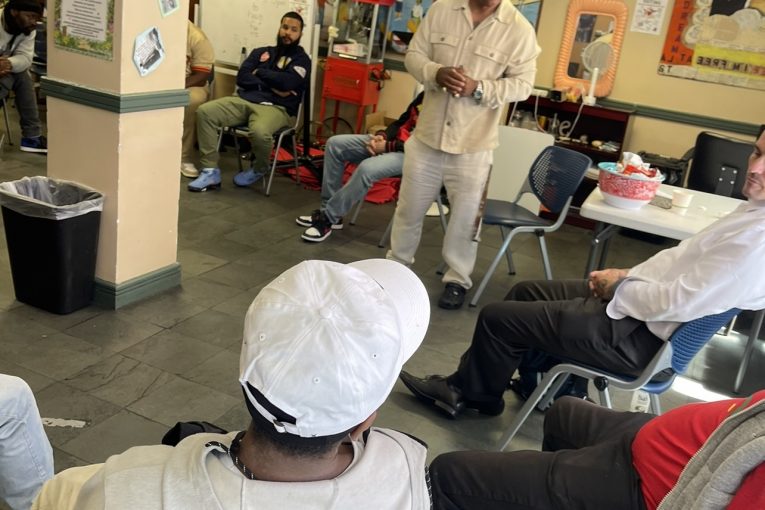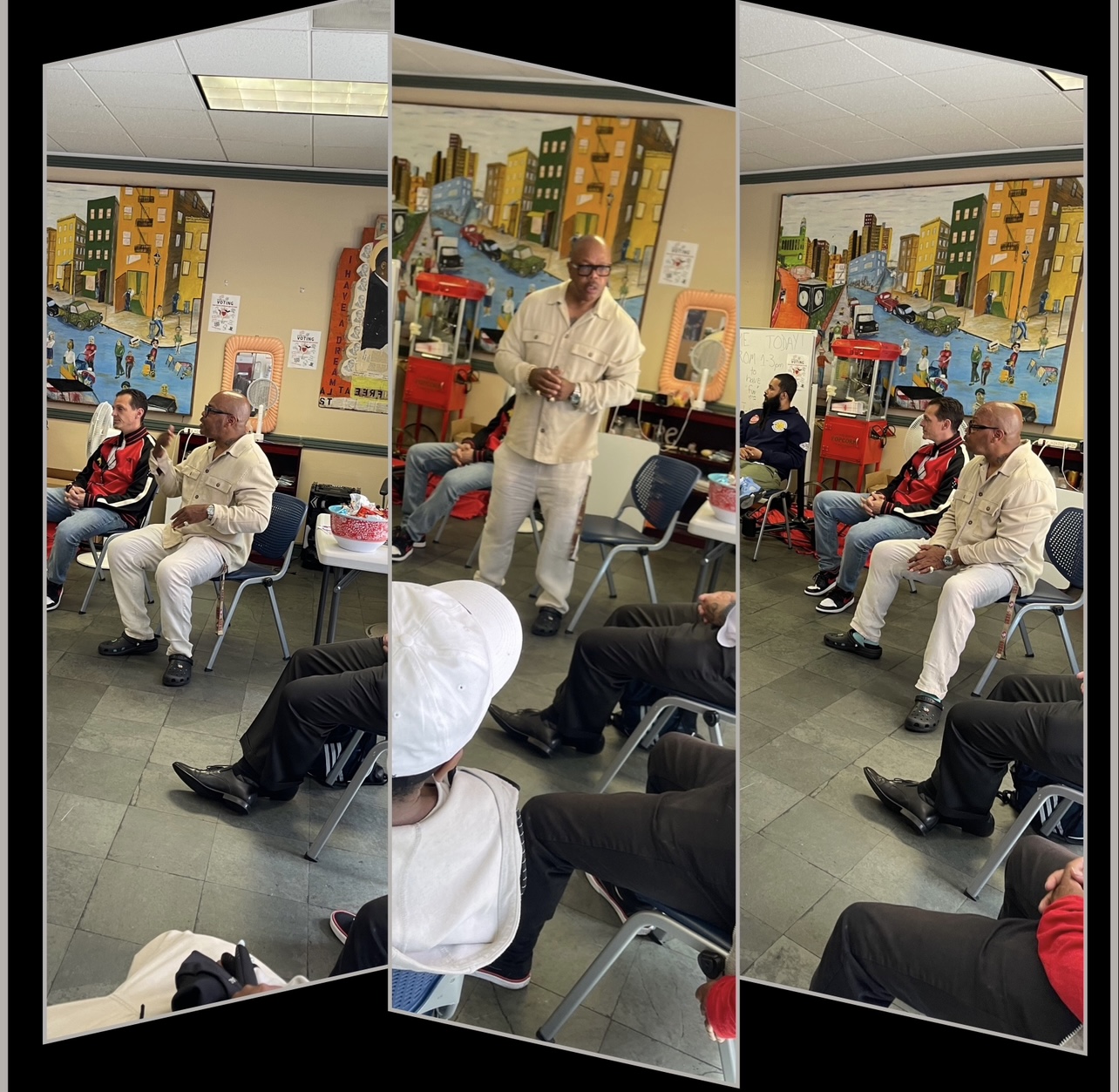

by Rodney Wrice
In the heart of San Francisco’s Tenderloin Neighborhood, a place often associated with challenges like homelessness, addiction, and incarceration, there exists a beacon of hope and transformation: the Hospitality House. Within its walls and through its practices, a remarkable individual named Terrance Blake, once a long-term offender who served over 20 years in prison, is making a powerful impact on those in need. His dedication to those coming from incarceration and other challenging circumstances has not only lowered recidivism rates but also addressed homelessness, addiction, and shifted mindsets concerning employment.
Terrance’s story is a testament to the power of second chances and the belief that change is possible for everyone. My thoughts explore how Terrance Blake and the work he is doing at the Hospitality House should be supported on all levels, shedding light on the fact that a prison sentence does not define a person’s potential to positively change their life and the lives of others.
Hospitality House is a progressive, community-based organization located in the heart of San Francisco’s Tenderloin Neighborhood, Sixth Street Corridor, and Mid-Market Area. Its mission is clear: to provide opportunities and resources for personal growth and self-determination to homeless people and neighborhood residents. The organization’s core values drive its work, emphasizing community power, resilience, dignity, mutual respect, and self-determination as the guiding principles.
One of the key strategies that sets Hospitality House apart is its commitment to leadership development and peer staffing. This approach ensures that those who have experienced homelessness, addiction, or incarceration themselves play an active role in helping others navigate similar challenges. This peer support model fosters empathy and understanding, creating a welcoming environment for individuals seeking assistance.
At the heart of Hospitality House’s impact is Terrance Blake, a living testament to the organization’s core belief in resilience. Having spent more than two decades behind bars, Terrance emerged from prison with a newfound purpose—to help others break the cycle of incarceration and rebuild their lives.
Terrance’s journey from long-term offender to an inspiration of hope began within the walls of the Hospitality House. Here, he found the support, resources, and guidance he needed to reintegrate into society. His personal transformation inspired him to dedicate his life to supporting others on their journey toward redemption and self- discovery.
discovery.
One of the most significant achievements attributed to Terrance Blake and the Hospitality House is the reduction in recidivism rates among those they serve. By offering a safe and supportive environment for individuals coming out of prison, they provide a crucial alternative to returning to a life of crime. Through mentorship, counseling, and vocational resources, Terrance and his team help former inmates gain the skills and confidence needed to secure stable employment and rebuild their lives.
Homelessness and addiction often go hand in hand, trapping individuals in a vicious cycle that can seem impossible to escape. The Hospitality House recognizes this interconnection and takes a comprehensive approach to address both issues. The Tenderloin Self-Help Center, an integral part of the organization, provides a range of services aimed at addressing immediate needs, such as shelter, food, and hygiene facilities.
Furthermore, through partnerships with organizations like the Harm Reduction Therapy Center, the Tenderloin Self-Help Center offers on-site mental health and substance use counseling, acknowledging the importance of addressing underlying issues that contribute to addiction and homelessness. Terrance Blake’s own experience serves as a source of inspiration for many who seek to overcome these challenges.
One of the most significant barriers individuals face upon reentry into society is securing stable employment, work clothes and other essentials. The stigma associated with a criminal record often leads to rejection and exclusion from the job market. Terrance Blake and the Hospitality House challenge this stigma head-on by providing vocational resources and training programs that empower individuals to regain their self-worth and contribute positively to society. When I first found a job with Urban Alchemy and a second job with PitStop it was Terrance I went to speak with and when I did he gave me my first set of work cloths, which not only made me feel good about being able to show up to work dressed like I was ready to work, but also how I felt about myself and my appearance. This juster alone showed me that Terrance was not only thinking about himself but he was in addition investing in my desire to work something I had never done before my incarceration.
By emphasizing self-determination and resilience, the Hospitality House instills a sense of purpose in those they serve. Through workshops, job placement assistance, and support groups, individuals gain the skills and confidence needed to rebuild their lives, ultimately changing the narrative surrounding employment for former offenders.
Terrance Blake’s remarkable journey from long-term offender to an inspiration of hope demonstrates that transformation and redemption are not only possible but also essential for building stronger, more compassionate communities. The work he and the Hospitality House are doing should be supported on all levels—locally, regionally, and nationally.
By providing a safe and supportive space for individuals in need, the Hospitality House not only lowers recidivism rates but also addresses homelessness, addiction, and employment challenges. Their approach to recovery and reintegration serves as a powerful example of how organizations can make a lasting impact on individuals and communities.
Terrance Blake and the Hospitality House embody the values of resilience, dignity, and self-determination. They show that with the right support and opportunities, anyone can change their life for the better and, in turn, change the lives of others. It is a testament to the idea that a prison sentence does not define a person’s potential, and second chances can lead to transformative outcomes. As we celebrate stories of redemption and positive change, let us also rally behind organizations like Hospitality House, dedicated to building stronger, more inclusive communities where everyone has a chance to thrive.
